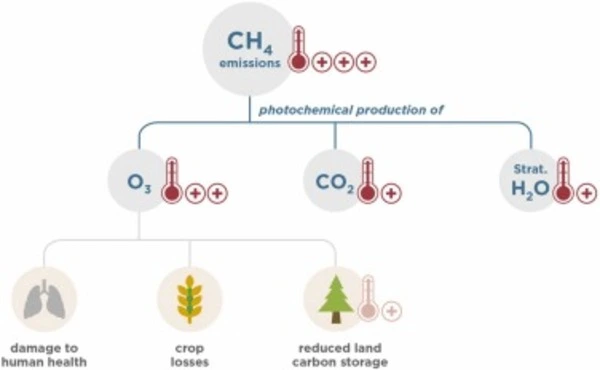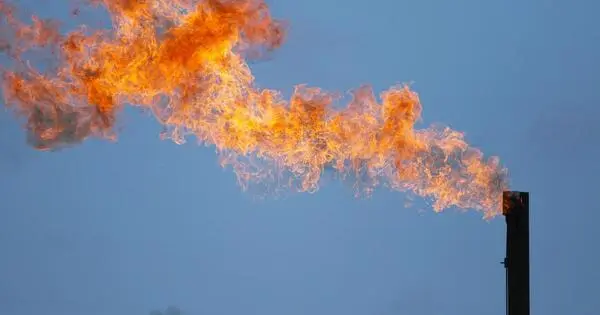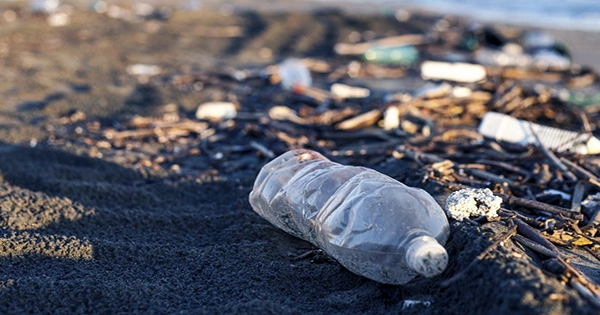Methane emissions have been rapidly increasing in recent years, significantly contributing to global warming. Despite this, existing national and international governance frameworks do not adequately address methane. In a recent study, researchers from the Institute for Advanced Sustainability Studies (IASS) in Potsdam emphasize the critical need for action.
The influence of greenhouse gases, including methane, is stated in terms of “CO2 equivalents,” a metric that reflects their warming effect over a 100-year period, according to the Paris Agreement. According to the researchers, this approach both fails to appropriately capture the climate impact of methane and ignores its effects on human health and ecosystems.
“Methane regulation based on ‘CO2 equivalence’ means that only its climatic impact on a 100-year timeline is rigorously considered – for example, in carbon pricing schemes. This ignores methane’s vital role in near-term climate – for the next 20 years, when its warming impact is nearly 80 times that of CO2. Because methane has a short atmospheric lifetime, efforts to reduce emissions can result in quick reductions in atmospheric concentrations and, as a result, global warming” Kathleen Mar, the IASS research group head, is the study’s lead author.
Methane regulation based on ‘CO2 equivalence’ means that only its climatic impact on a 100-year timeline is rigorously considered – for example, in carbon pricing schemes. This ignores methane’s vital role in near-term climate – for the next 20 years, when its warming impact is nearly 80 times that of CO2.
Kathleen Mar
Furthermore, the Paris Agreement and other governance frameworks fail to take methane’s contribution to air pollution into account.
According to current science, carbon emissions are a real externality. The price of fossil fuels reflects the direct costs of producing them and the benefits they provide users. But burning fossil fuels promotes climate change, which affects other parties, and this is not factored into prices. Absent intervention, therefore, market prices are too low, and use of fossil fuels too high, relative to the socially efficient outcome.

Growing awareness among policymakers
Wetlands, fossil fuels, agriculture, waste management, and fires are all natural and manmade sources of methane. Methane emissions and concentrations have been quickly growing in recent years, which is concerning. According to one recent study, this is due to emissions from fossil fuels and combined emissions from agricultural and waste management in about equal percentages. However, some methane emissions data is thought to be inaccurate: onsite measurements have consistently demonstrated that methane emissions from oil and gas operations are underreported, and reporting in the agriculture sector is still dominated by simple estimating methods.
While methane governance faces significant obstacles, the researchers notice some encouraging developments: For example, as part of the European Green Deal, the EU has issued a strategy to minimize methane emissions. At the COP26 Climate Conference in Glasgow, nearly 100 countries signed the “Global Methane Pledge,” which was proposed by the United States and the European Union, to reduce global methane emissions by at least 30% by 2030.
Non-governmental actors stepping up
According to Kathleen Mar, swift execution of these pledges is critical: “Governments have frequently failed to deliver on their promises about climate change. This does not have to be the case with methane: large reductions in methane emissions are within our grasp with modern technologies and cost-effective methods, such as enhanced leak detection in the oil and gas industry and methane capture and utilization technologies for landfills.”
The expansion of the actor landscape over the last decade also provides reason for optimism, with a wide range of non-governmental groups, international coalitions, and private-sector projects addressing methane and suggesting avenues for increased mitigation.
















